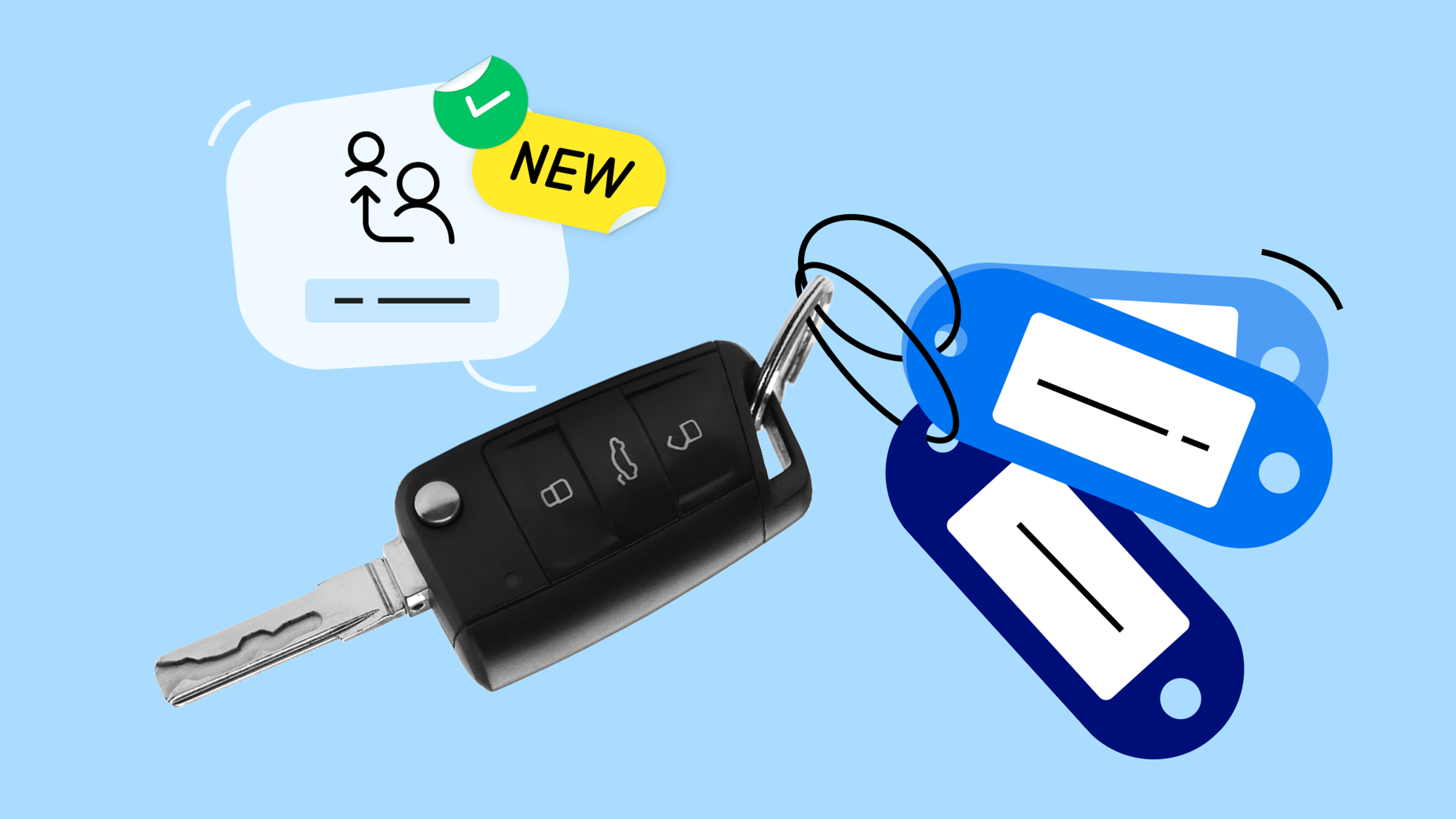16/04/2025
Ownership feature: Check the number and timeline of a car’s previous owners

When buying a used car, the question isn't just "how does it drive?” – it’s "how many have driven it before?" Because every change in ownership leaves a trace – and now, you can see how many there have been.
We are happy to introduce the Ownership feature to our reports. It will show how many drivers held the keys to the car before you, offering insights into its condition and potential issues.
Used cars have dark secrets
Reveal them all! Just enter a VIN code and click the button:
Introducing the Ownership feature
You will see how many owners the vehicle has had over its lifetime immediately after opening the carVertical report (if ownership data is available in our partners’ databases).
For more information, go to the Ownership section, which contains a timeline that spans the vehicle’s entire life, from its first registration to the present day. Each record in this section typically includes:
- Type of event (First registration or owner change)
- The country where the event occurred
- Date of the record
So you learned the number of previous owners – what now?
Although knowing the number itself can’t guarantee a surprise-free purchase, considering the context behind that number can help you get closer to your goal.
Here’s how you can use ownership information.
1. Look at the ownership duration
The number of owners alone doesn’t say much – it could be 2, 3, or 4, and the car may still have been well-maintained and cared for. How long each owner kept the car can tell you far more.
If the ownership was short, it might indicate that previous owners experienced recurring problems with the car and chose to sell it quickly. For instance, a vehicle with three owners within ten years isn’t necessarily a red flag – but three owners in two years? Suspicious.
2. Ask questions
Ownership history can give you a starting point to dig deeper. A car with fewer owners often means tracking its maintenance and service records is easier. On the other hand, the higher the number, the harder it gets to uncover this information.
That’s why it’s worth asking the seller questions like:
- Do you have records from all previous owners?
- Were there any major repairs done under previous ownership?
- Do you know why the previous owners sold the car?
These and similar questions can reveal gaps in the story or help confirm that the car’s history is solid. The goal isn’t to interrogate but to build a clearer picture before you buy.
3. Cross-reference it with other sections of the carVertical report
The number of owners is just one piece of the puzzle and isn't always meaningful on its own. Combine it with mileage records, accident history, usage data, and other sections of the carVertical report to get the full picture.
For example, mileage records can reveal patterns like consistent use or sudden spikes that might indicate heavy, short-term usage. Gaps in reported mileage could be a red flag – or at least something to ask about. Similarly, damage history can provide insights into past accidents and their severity.
The key is to look at how all this information works together – a car with three careful owners and a clean accident history may be in better shape than one with a single owner who neglected maintenance or had questionable driving habits.
Why ownership information matters
Think of it this way – a car with several owners is like an apartment that’s been rented out to multiple tenants. Each of them might treat it differently – some might fix things up, others might leave a few issues behind and not care at all.
Therefore, the Ownership feature can help you:
- Get a clearer picture of a car’s history – you can better understand how it has been used and whether it’s been well cared for or possibly neglected.
- Watch out for potential red flags – frequent ownership changes may indicate unresolved issues, allowing you to dig deeper into the car’s condition or avoid it altogether.
- Compare similar vehicles – it allows you to compare multiple cars with similar characteristics and evaluate which has the most stable and predictable history, making your choice easier.
- Negotiate – knowing the ownership history can give you leverage in negotiations. If you notice multiple owners, you may have grounds to negotiate a lower price, especially if there are indications of problems.
- Make a better purchase decision – by cross-referencing ownership information with other report sections, you can make a more informed decision about whether the car is a good investment or carries too many potential risks.
Every owner leaves their mark on a car’s story, so roll up your sleeves for some serious investigation – with a helpful nudge from the Ownership section.
Check your registration number
Avoid costly problems by checking a vehicle's history. Get a report instantly!
